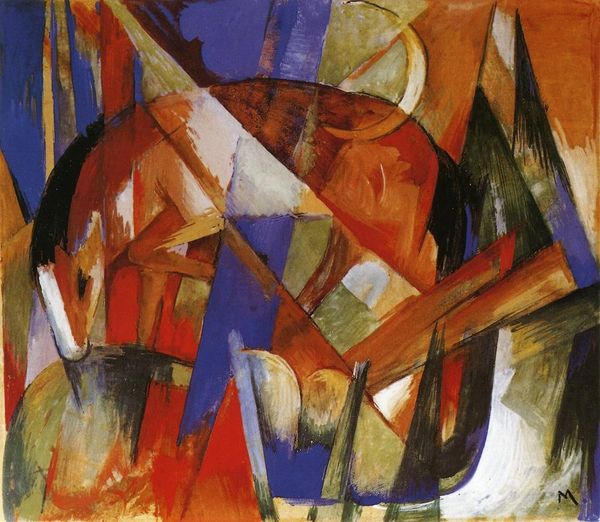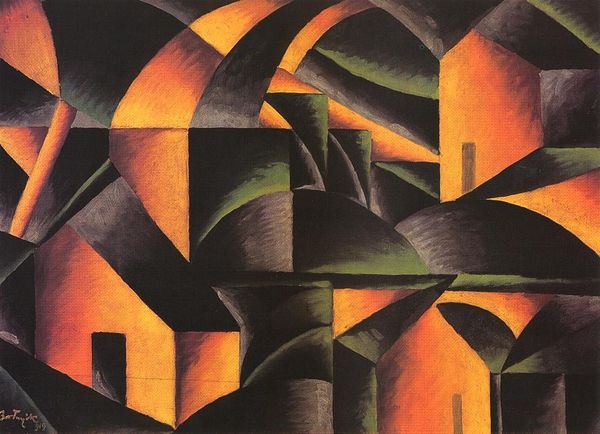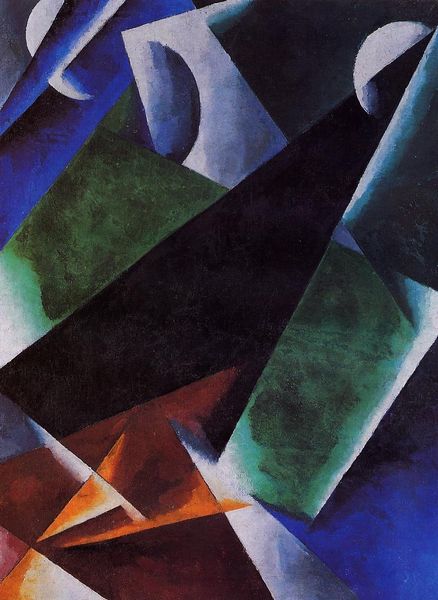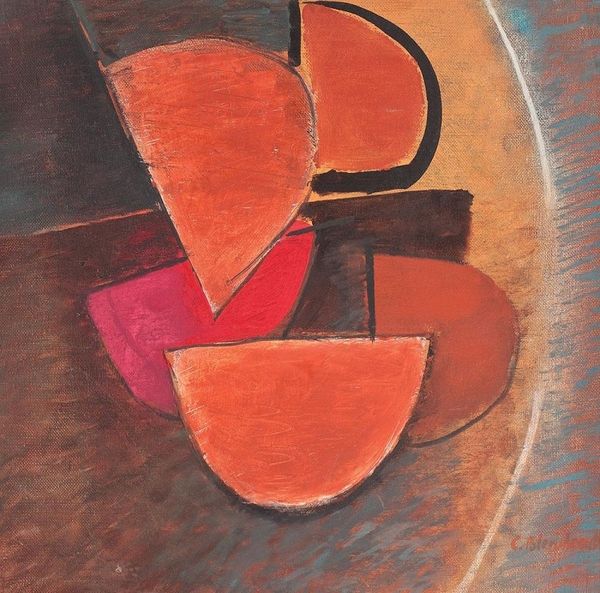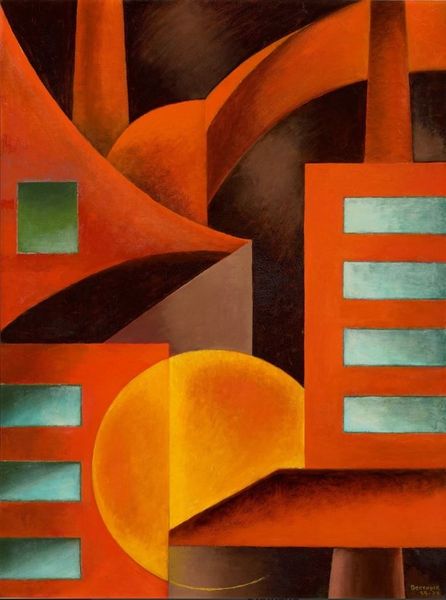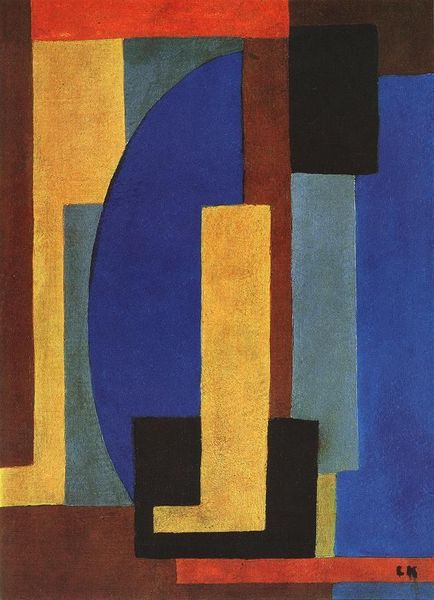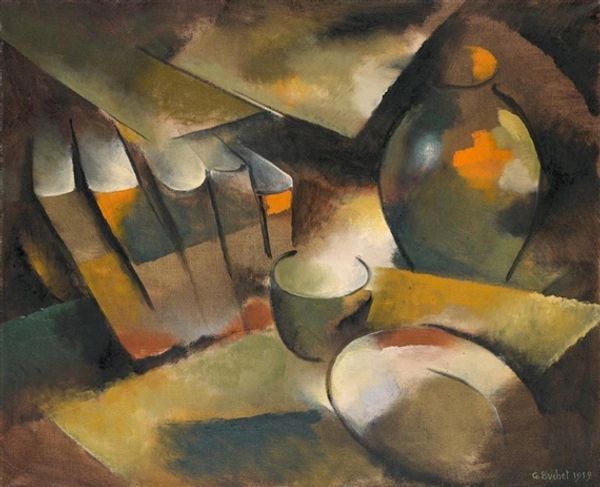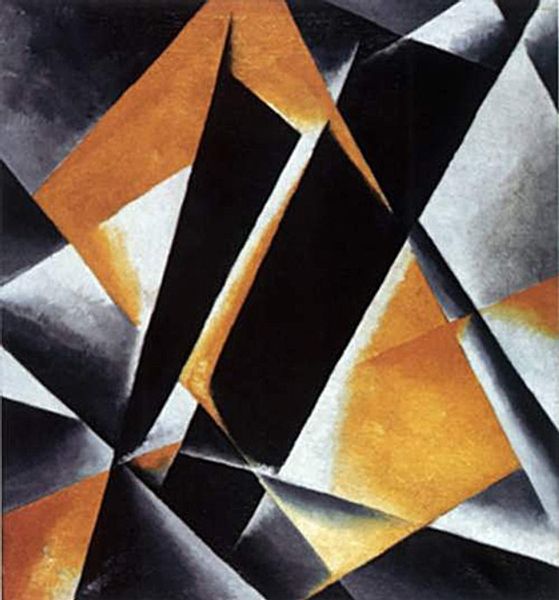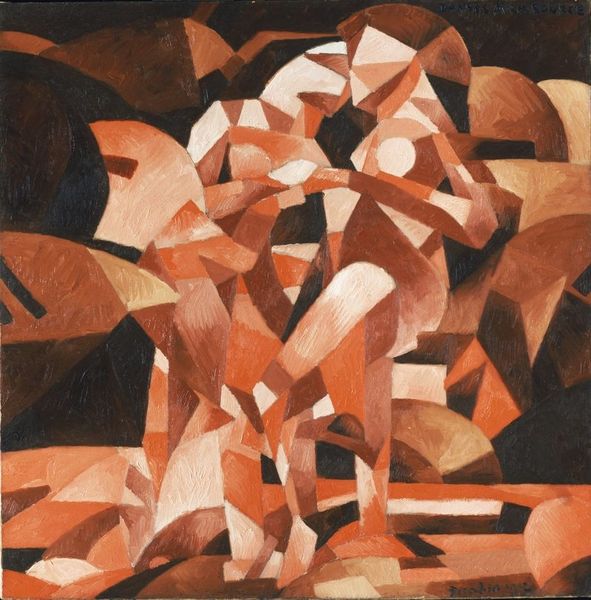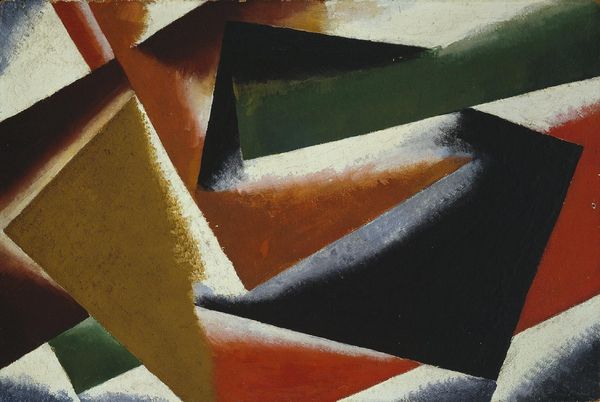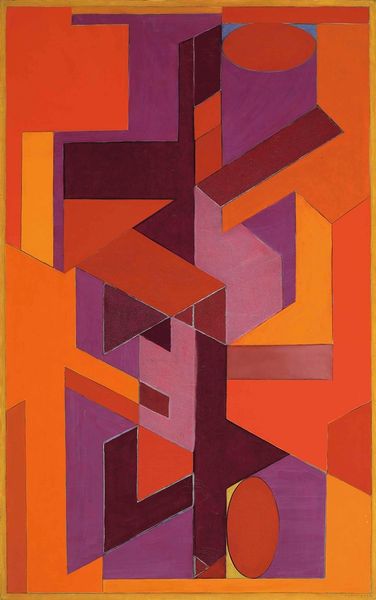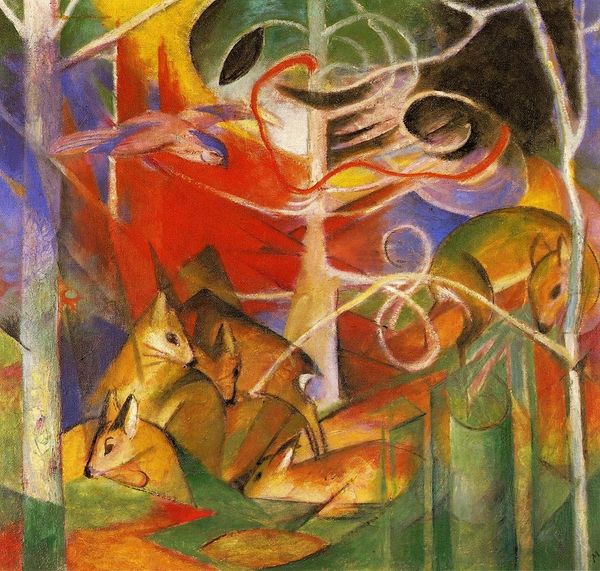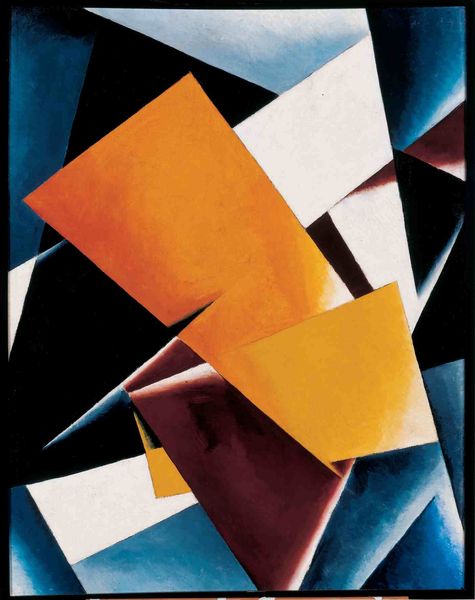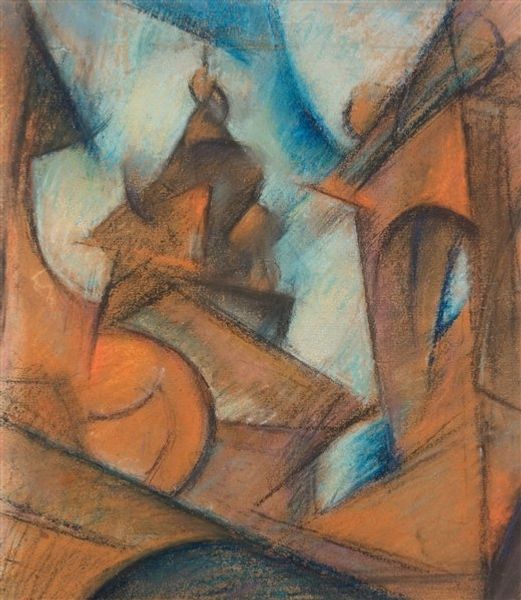
oil-paint
#
cubism
#
abstract painting
#
oil-paint
#
constructivism
#
possibly oil pastel
#
form
#
oil painting
#
acrylic on canvas
#
geometric
#
abstraction
#
line
#
cityscape
#
abstract art
#
modernism
#
expressionist
Copyright: Public domain US
Editor: Here we have Sándor Bortnyik's "Red Factory," created in 1919 using oil paint. There's something quite powerful and unsettling about its geometric forms and limited palette, a sense of industrial might perhaps? What do you see in this piece? Curator: This painting provides an important insight into the socio-political fervor following World War I. Bortnyik, though associated with modern art movements, was deeply engaged with socialist ideals. The “Red Factory” isn't just about formal abstraction; it’s a statement. What do you think a red factory symbolized in 1919, particularly in Hungary? Editor: Well, "red" immediately makes me think of communism, and a factory would represent the proletariat, the working class. So, together, it's about… the power of the workers in a socialist state? Curator: Precisely. Notice how the factory is rendered as a collection of imposing, almost overwhelming geometric shapes. Is this a celebratory vision of industrial progress, or something more ambiguous? Could it also be seen as critical of the dehumanizing aspects of industrialization? Consider also how state-funded institutions encouraged certain forms of art during that era, influencing what was created and how it was displayed. Editor: That’s a really interesting point. I hadn’t considered the possible critical lens. Maybe it’s not a straightforward celebration, but a commentary on the impact of industrialization on society. Curator: Exactly! Analyzing art within its historical context, considering patronage and politics, allows us to understand its multifaceted meanings and lasting impact. Editor: I see what you mean! Thinking about the social and political context really unlocks new interpretations of this piece. Thank you! Curator: My pleasure. There’s always more to discover beneath the surface.
Comments
No comments
Be the first to comment and join the conversation on the ultimate creative platform.
